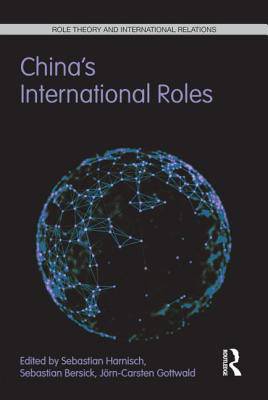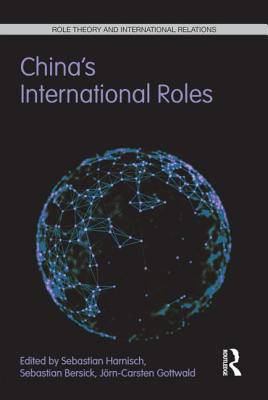
- Afhalen na 1 uur in een winkel met voorraad
- Gratis thuislevering in België vanaf € 30
- Ruim aanbod met 7 miljoen producten
- Afhalen na 1 uur in een winkel met voorraad
- Gratis thuislevering in België vanaf € 30
- Ruim aanbod met 7 miljoen producten
China's International Roles
Challenging or Supporting International Order?
Omschrijving
This collection examines changes in China's international role over the past century. Tracing the links between domestic and external expectations in the PRC's role conception and preferred engagement patterns in world politics, the work provides a systematic account of changes in China's role and the mechanisms of role taking. Individual chapters address the impact of China's history and identity on its bilateral role taking patterns with the United States, Japan, Africa, the Europe Union, and Socialist States as well as China's role in international institutions, the G-20, and East Asia's Financial Order.
Each of the empirical chapters is written to a common template exploring the role of historical self-identification, altercasting and domestic role contestation in shaping the PRC's role. The volume provides an analytically coherent framework evaluating whether cooperation or conflict in China's international engagement is likely to increase, and if so, the extent to which this will follow from incompatible domestic demands and external expectations. By combining a theoretical framework with strong comparative case studies, this volume contributes to the ongoing debate on China's rise and integration into the international society and provides sound conclusions about the prospects for a transition of China's purpose in world politics.
Specificaties
Betrokkenen
- Uitgeverij:
Inhoud
- Aantal bladzijden:
- 276
- Taal:
- Engels
- Reeks:
Eigenschappen
- Productcode (EAN):
- 9781138903814
- Verschijningsdatum:
- 28/07/2015
- Uitvoering:
- Hardcover
- Formaat:
- Genaaid
- Afmetingen:
- 152 mm x 231 mm
- Gewicht:
- 521 g

Alleen bij Standaard Boekhandel
Beoordelingen
We publiceren alleen reviews die voldoen aan de voorwaarden voor reviews. Bekijk onze voorwaarden voor reviews.










